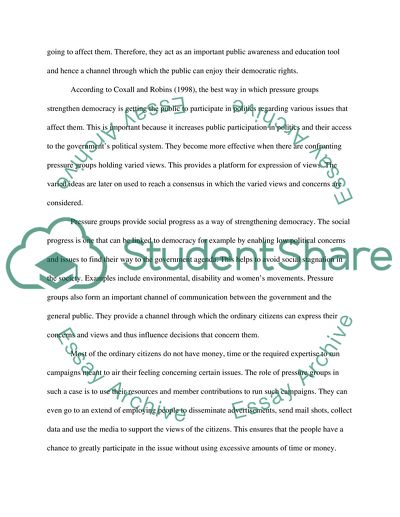Cite this document
(“Do pressure groups strengthen or undermine British democracy Essay”, n.d.)
Do pressure groups strengthen or undermine British democracy Essay. Retrieved from https://studentshare.org/miscellaneous/1576281-do-pressure-groups-strengthen-or-undermine-british-democracy
Do pressure groups strengthen or undermine British democracy Essay. Retrieved from https://studentshare.org/miscellaneous/1576281-do-pressure-groups-strengthen-or-undermine-british-democracy
(Do Pressure Groups Strengthen or Undermine British Democracy Essay)
Do Pressure Groups Strengthen or Undermine British Democracy Essay. https://studentshare.org/miscellaneous/1576281-do-pressure-groups-strengthen-or-undermine-british-democracy.
Do Pressure Groups Strengthen or Undermine British Democracy Essay. https://studentshare.org/miscellaneous/1576281-do-pressure-groups-strengthen-or-undermine-british-democracy.
“Do Pressure Groups Strengthen or Undermine British Democracy Essay”, n.d. https://studentshare.org/miscellaneous/1576281-do-pressure-groups-strengthen-or-undermine-british-democracy.


